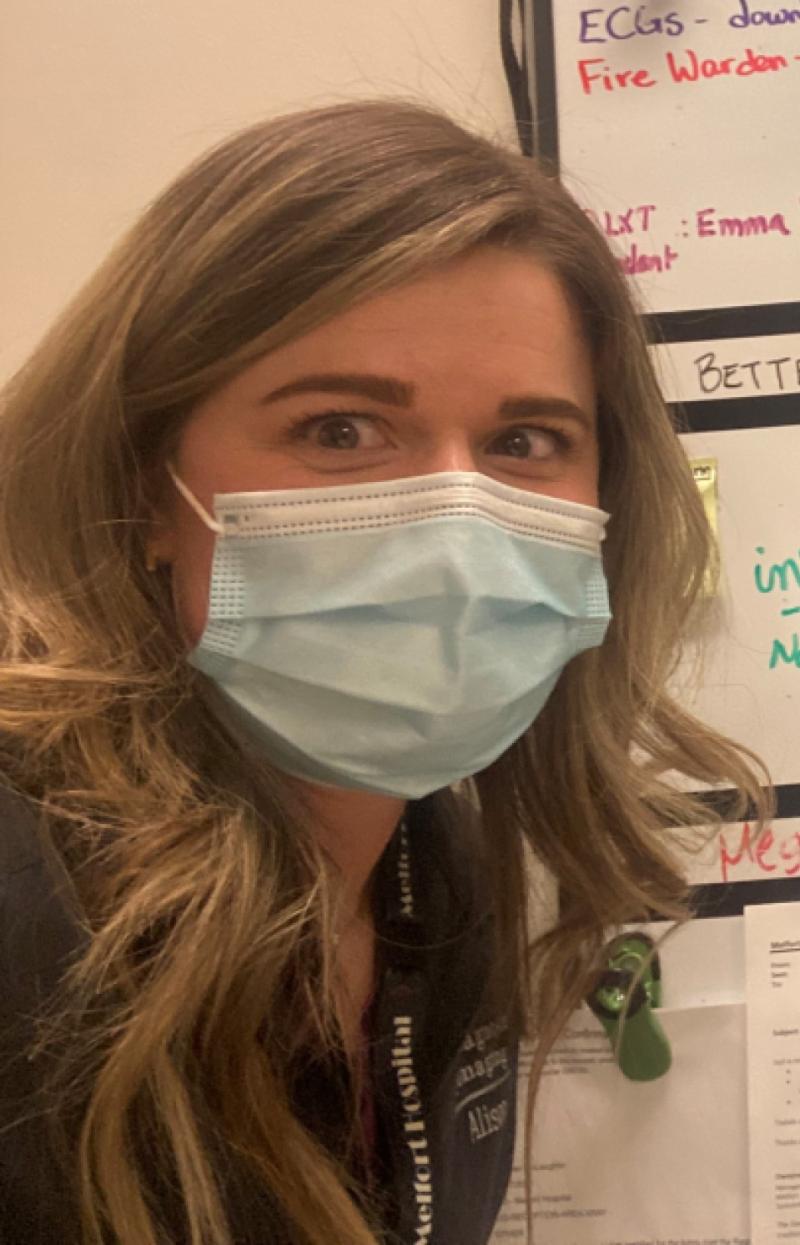Alison Michaliew Career Spotlight
What area of health care do you work in? Where do you work?
"I am a Medical Radiation Technologist (MRT) in Melfort."
What are you responsible for as a Medical Radiation Technologist? Please describe a typical day for yourself.
"In our department we do general X-rays, Computed Tomography (CT) scans, and Operating Room (OR) work with a C-arm. Because we are a rural site, our department also does electrocardiograms (ECGs), Exercise Stress Tests, Pulmonary Function Tests, and we hook up Holter monitors. Some of our day is scheduled but a lot of it just depends on what walks through the door. If the Emergency Room (ER) is busy then so are we. No two days are the same."
How is your work-life balance as a Medical Radiation Technologist? Please compare your current experience with other jobs you have had in the past.
"In our rural setting we work daily from 7:30am to 4:00 or 5:00pm and outside of those hours one of us is always on call; meaning we are called in to work for emergent cases that cannot wait until the next morning. That is the tricky part for me. I have 3 busy kids, so working call takes some scheduling to make sure everyone and everything is looked after. On the positive side, call is a welcome addition to my pay cheque."
Have you always wanted to be a Medical Radiation Technologist? Tell us more about your career path to becoming an MRT!
"I broke my wrist in Grade 12 and when I was getting my first (ever) x-ray, it hit me… this would be a good job! So I asked the MRT if she liked her job and the work and she gave me nothing but positive feedback. I always knew I wanted to work in health care but I didn’t feel nursing was the right fit for me. I hadn’t really thought about x-ray as an option before this. I job shadowed a couple of days and I was convinced. I really enjoy my job and love coming to work. I considered myself very lucky to have found such a rewarding career."
Are there opportunities to further your career as a Medical Radiation Technologist?
"Yes, technology is constantly changing for MRT. It is important for MRTs to keep up with these changes. MRTs can also specialize in many different areas. Two years ago, our department got a CT scanner and we had the opportunity to further our training to run the scanner. MRTs can also work in Mammography, Angiography, and many different types of cases in the OR. MRTs also have teaching opportunities as preceptors during their work at the hospital for both MRT and Combined Laboratory and X-ray Technologist (CLXT) students."
Do you have any advice for students or new graduates looking to pursue a career as an MRT?
"There are many jobs available in diagnostic imaging, especially in rural centres. MRTs in rural typically have a broader scope of practice and can see a large variety of patient situations. This allows you discover what area you may want to specialize in as a MRT. It also provides you a strong understanding of how rural health care is managed and to see how each role in health care assists in delivering patient care as a multidisciplinary team."
What is the number one thing you love about being a Medical Radiation Technologist?
"I love helping patients. I enjoy hearing their stories and providing a friendly face in what can be a scary and stressful time. I am so fulfilled after a day of work, I feel like what we do makes a difference for our patients."



